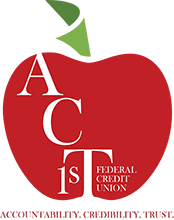From Passwords to Privacy: Master Your Digital Defense
In today’s modern society, safeguarding your digital information has become increasingly crucial. With the implementation of EMV chips on the majority of credit and debit cards, instances of fraud in physical settings have significantly decreased. However, cybercriminals have shifted their focus to online platforms, making it vital for you to be prepared and knowledgeable.
We are committed to ensuring your online safety at all times. To assist you in this endeavor, we have categorized the information by medium and consulted our team of internal security specialists.
Here is what you should be aware of:
Passwords: Secure Your Login
Consider the number of accounts you have that require passwords, such as Online Banking, Netflix, Facebook, and more. It’s likely that you have over 20 accounts, maybe even more than 40! How can you be expected to remember that many different high-strength passwords?
According to cybersecurity experts, utilizing a password manager is an effective way to safeguard your accounts. A password manager is a tool that generates, encrypts, and securely stores unique passwords for each of your accounts. Instead of using easily guessable passwords like “Password” or “123456,” a password manager will create strong passwords on your behalf and provide them whenever you need them.
You have the option to choose between locally installed and cloud-based password managers, so we recommend researching and finding the best tool that suits your needs.
5 Most Common Passwords:
1. 123456
2. 123456789
3. qwerty
4. Password
5. 111111
Don’t use these passwords.
What You Should Do
○ Determine how many password-protected accounts you really have.
○ Consider migrating your passwords into a password manager.
○ Enable multifactor authentication wherever possible (the extra step keeps you safer).
○ If you no longer use an account, delete it or have it deactivated.
○ Ensure you aren’t using the same password for multiple accounts.
Email: Secure Your Inbox
Your email address plays a crucial role in your online activities. It is utilized for various purposes, including signing up for Online Banking and online shopping platforms. Over the past decade, numerous major companies have experienced email breaches, emphasizing the importance of safeguarding your own account.
What You Should Do
○ Avoid opening emails from senders you don’t know or recognize. Delete them immediately.
○ Don’t click on any links or open any attachments in suspicious emails.
○ Set up multifactor authentication for an extra layer of login security.
○ Make sure your password is strong and un-guessable.
Security Tip From the ACT 1st FCU Fraud Department
Take a sentence and abbreviate it as your password.
Example: Wow!tb@MCDwaGr8 = Wow! The burger at McDonald’s was great.
Social Media: Secure Your Profiles
Social media is a remarkable advancement, allowing billions of individuals to share and communicate with others worldwide. Although it offers numerous advantages, it also exposes people to various scams.
Here are some of the most common ones to look out for:
○ Avoid opening emails from senders you don’t know or recognize. Delete them immediately.
○ Don’t click on any links or open any attachments in suspicious emails.
○ Set up multifactor authentication for an extra layer of login security.
○ Make sure your password is strong and un-guessable.
Catfishing
This is when a scammer creates a mock social media profile to bait you into a fake online relationship. The scammer then builds trust and leverages the relationship to get money or other valuable benefits from you.
Profile Hijacking
There are two forms of profile hijacking to look out for. In one scenario, a scammer will hack into your profile and change the password, essentially locking you out. (That’s why you need a strong password!) The other scenario involves the scammer pretending to be you by creating a profile identical to yours. In both cases, the scammer will often reach out to your friends for money.
Data-Mining Quizzes
Your Facebook newsfeed may be full of fun quizzes to find out things like who your celebrity soulmate is, or which superhero you are. While those can be entertaining, you have to be careful. Some quizzes from unrecognized sources could include hidden links that can steal your personal information, or they could be gaining personal information from the quiz to hack your passwords.
URL Shorteners
The URL for the Connexus website is https://www.connexuscu.org/ . You can tell by looking at it that you’re going to the ACT 1st Federal Credit Union website. If you use a URL shortener on it, the same URL could look like this: https://bit.ly/3NjLjWu . It still takes you to the ACT 1st FCU website, but you can’t tell by simply looking at it.
A scammer could trick you into thinking you’re going to be directed toward a reputable site, but the shortened URL could actually be linked to a page that leaves malware or directs you to another scam. Short URLs are common on Twitter® because of the character limit, so be sure you trust the source of the URL.
What You Should Do
○ Avoid clicking on suspicious links and ads. Make sure you know and recognize the source.
○ Ensure the passwords for your social media accounts are strong.
○ Don’t take Facebook® quizzes created by brands you’ve never heard of or don’t trust.
○ Never send money to someone you don’t know.
Digital Banking: Secure Your Accounts
With access to all your data and money, this is an area you definitely want to protect. When it comes to ACT 1st FCU Online Banking, we dedicate significant resources to ensure the protection of your accounts. However, not all financial institutions prioritize security in the same way. Therefore, it is essential for you to remain vigilant and take additional precautions at all times.
What You Should Do
○ Only access your Digital Banking account from a secure wireless network (not public).
○ Make sure your Digital Banking password is strong and unlike any other of your passwords.
○ Set up multifactor authentication for an extra layer of security.
○ Opt for fingerprint or facial recognition login if your phone is compatible.
Online Shopping: Secure Your Cart
This presents one of the greatest fraud risks. Whenever you’re making online payments, you should be cautious. Make sure you’re taking appropriate precautions, especially during peak shopping seasons.
What You Should Do
○ Make sure you’re using a secure wireless network when making online transactions. Your payment info could be tracked on a public network.
○ Monitor your account to make sure no unwarranted transactions happen.
○ Only shop at well known, trusted websites and brands. If you don’t know whether a site is reputable, research the company online, on social media, etc. Another way to tell is a site is safe is to look at the address bar on your browser. You want to opt for sites that have URLs starting with “https” instead of “http” and have a lock icon next to the URL. See the example below:
Mobile: Secure Your Phone
Your cellphone contains more private information than you might realize — it’s your portal to everything! If someone got into your mobile device, you could face a real danger of having your identity stolen.
What You Should Do
○ Keep your device’s software up to date.
○ Add authentication to your device (passcode, fingerprint, facial recognition, etc) so it can only be access with the proper credentials.
○ Only use secure wireless networks. Your information could be accessed by hackers from a public network.
○ Uninstall apps you no longer use or ones that ask for too much personal information that you’re not comfortable providing.
○ If your device supports it, enable device encryption to protect your data if your device is lost or stolen.
○ Never leave your device unattended in a public place.
We care about keeping you safe online. We put a lot of effort into guarding your accounts, but you play a big role in your own protection. Secure your information, update it regularly, and stay safe.









